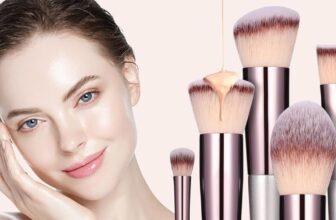Skin peeling on your face after skincare can be concerning. It may seem alarming, but understanding the cause can help.
Many people experience this issue after applying new products. The skin can react in different ways. Factors like irritation, dryness, or allergies can lead to peeling. Sometimes, the ingredients in skincare products may not suit your skin type. This can cause the outer layer of skin to flake off.
Knowing the reasons behind this can help you choose the right products. It can also guide you to adjust your routine. In this blog post, we will explore common causes of skin peeling and how to address them. Understanding these factors can lead to healthier, more vibrant skin.
Introduction To Facial Skin Peeling
Facial skin peeling can be concerning. It often happens after using skincare products. Many people wonder why this occurs. Understanding the reasons can help. Let’s explore the signs and concerns related to skin peeling.
Initial Signs Of Skin Peeling
The first signs of peeling skin can be subtle. You may notice dryness or tightness. Flaky patches often appear on the cheeks or forehead. Redness might accompany these changes. This can be alarming, especially if you use new products.
Skin peeling can result from various factors. Over-exfoliation is a common cause. Using strong active ingredients can lead to irritation. Sunburn can also trigger peeling. Allergic reactions to products may worsen the issue.
Common Concerns About Facial Skin Health
Skin peeling raises several concerns. Many worry about skin damage. Some fear their skincare routine is harmful. Others may think they have a skin condition. Understanding the cause is essential for proper care.
Consulting a dermatologist can provide clarity. They can identify if peeling is normal or a sign of a problem. Adjusting your skincare routine may help prevent further peeling.

Credit: sublimelife.in
Skin Anatomy And Peeling Process
Understanding skin anatomy helps explain why your skin peels. The skin has several layers, each with a specific role. Peeling can occur for many reasons, including products and environmental factors. Let’s explore the layers of the skin and the process of natural exfoliation.
Layers Of The Skin
The skin consists of three main layers: the epidermis, dermis, and subcutis. The outermost layer is the epidermis. It protects against bacteria and dehydration. Underneath is the dermis, which contains blood vessels and nerves. It gives skin its strength and elasticity. The deepest layer is the subcutis. It stores fat and helps regulate temperature.
Peeling often starts in the epidermis. This layer constantly renews itself. Dead skin cells rise to the surface and shed. Sometimes, this process speeds up, causing visible peeling.
Natural Exfoliation Explained
Natural exfoliation is the skin’s way of renewing itself. New skin cells form beneath the surface. They push older cells upward. This cycle usually takes about 28 days. However, factors like age and skincare can change this rate.
Using harsh products can disrupt this cycle. Over-exfoliating can lead to irritation and peeling. Moisture loss can also affect skin health. Hydrated skin sheds less often. Finding the right balance in your routine is key to healthy skin.
Key Factors Contributing To Skin Peeling
Skin peeling on the face can be frustrating. Understanding the reasons behind this issue is essential. Several factors can lead to this problem. Let’s explore the key contributors.
Impact Of Harsh Skincare Products
Using harsh skincare products can damage your skin. These products often contain strong chemicals. They can strip away natural oils. This leads to dryness and irritation.
- Exfoliating agents: Overuse can thin the skin.
- Fragrances: These can cause allergic reactions.
- Alcohol: It can dry out the skin quickly.
Choosing gentle products is vital. Look for items labeled as fragrance-free and suitable for sensitive skin. Test new products on a small area first. This can help you avoid reactions.
Effects Of Environmental Stressors
Environmental factors greatly affect skin health. Pollution, sun exposure, and extreme weather can cause peeling. Each of these stressors has unique effects.
| Environmental Factor | Effect on Skin |
|---|---|
| Pollution | Clogs pores and leads to irritation. |
| Sun Exposure | Causes sunburn and accelerates skin aging. |
| Cold Weather | Dries out skin, leading to flaking. |
Protecting your skin from these stressors is important. Use sunscreen daily. Moisturize regularly, especially in dry weather. Cleanse your face to remove pollutants.
Skincare Routines And Peeling
Peeling skin can be frustrating. It often happens after starting a new skincare routine. Many people want glowing skin. Sometimes, their skin reacts poorly instead. Understanding why this happens is key.
Over-exfoliation And Its Consequences
Exfoliation helps remove dead skin cells. It can make skin smoother and brighter. However, too much exfoliation can harm the skin. Here are some signs of over-exfoliation:
- Redness
- Itching
- Dry patches
- Flaky skin
Over-exfoliating can strip natural oils. This can lead to peeling skin. It can also cause irritation. Limit exfoliation to 1-3 times a week. Choose gentle products to avoid damage.
Allergic Reactions To New Products
New skincare products can cause allergic reactions. This can lead to peeling skin. Ingredients like fragrances and preservatives often trigger allergies. Look for these symptoms:
- Red rash
- Swelling
- Burning sensation
- Peeling skin
Always patch test new products. Apply a small amount on your wrist. Wait 24 hours to check for reactions. If you notice any irritation, stop using the product.
Medical Conditions Causing Facial Peeling
Facial peeling can be a sign of various medical conditions. Understanding the cause is crucial for effective treatment. Some skin conditions may need medical attention. Recognizing these conditions can help you find relief.
Recognizing Eczema And Psoriasis
Eczema and psoriasis are two common skin conditions that can cause peeling.
- Eczema is often itchy and red. It can lead to dry patches.
- Psoriasis creates thick, scaly patches. These can flake off easily.
Here are some signs to help you identify these conditions:
| Condition | Symptoms |
|---|---|
| Eczema | Itchiness, redness, dryness, and swelling |
| Psoriasis | Thick, red patches covered with silvery scales |
Both conditions can worsen with stress and environmental factors. Consulting a dermatologist is important for proper diagnosis.
Identifying Fungal Infections
Fungal infections can also cause peeling skin on the face. They thrive in warm, moist areas. Common types include tinea faciei and candida.
- Tinea faciei appears as red, itchy patches.
- Candida may cause white, flaky areas.
Watch for these symptoms:
- Redness and inflammation
- Itching and discomfort
- Flaky or scaly skin
Diagnosis often requires a skin test. Treatment usually involves antifungal creams or medication.
Sun Exposure And Skin Damage
Sun exposure can hurt your skin. It may cause peeling. This happens more often after using skincare products. The sun’s rays damage the skin. Understanding this can help you protect your face.
Understanding Uv Impact On Skin
UV rays from the sun can harm your skin. They penetrate deep layers. This damage can lead to peeling. Skin cells die off as a result. New skin needs to replace them. This process causes flaking and irritation.
Even short sun exposure can have effects. People with sensitive skin may notice it more. Products that contain acids can increase sensitivity. Mixing these with sun exposure can lead to peeling.
Preventing And Treating Sunburn
Prevention is key. Always use sunscreen before going outside. Choose a broad-spectrum sunscreen with at least SPF 30. Reapply every two hours, especially after sweating or swimming.
If you do get sunburned, treat it gently. Apply cool compresses to soothe the skin. Use aloe vera to help with healing. Stay hydrated to support your skin’s recovery.
Watch your skin closely. If peeling continues or worsens, consult a dermatologist. They can recommend the best care for your skin type.
Nutrition And Hydration’s Role In Skin Health
Healthy skin needs good nutrition and hydration. What you eat and drink can affect your skin’s appearance. Poor nutrition can lead to dry, peeling skin. Staying hydrated keeps your skin looking fresh and vibrant. Let’s explore how diet and hydration support skin health.
Importance Of A Balanced Diet
A balanced diet is key for skin health. Include a variety of foods to get essential nutrients. Here are some important nutrients for your skin:
- Vitamins: Vitamins A, C, E, and K promote skin health.
- Minerals: Zinc and selenium help repair skin.
- Healthy Fats: Omega-3 fatty acids keep skin moist.
- Antioxidants: They protect skin from damage.
Eating fruits, vegetables, whole grains, and lean proteins can improve your skin. Avoid excessive sugar and processed foods. These can cause inflammation and skin issues.
Staying Hydrated For Skin Elasticity
Hydration is vital for maintaining skin elasticity. Drinking enough water helps skin stay plump and soft. Dehydrated skin may peel and look dull. Aim for at least 8 cups of water daily.
Other ways to stay hydrated:
- Eat water-rich foods like cucumbers and watermelon.
- Limit caffeine and alcohol. They can dehydrate your skin.
- Use a humidifier. It adds moisture to the air.
Healthy skin reflects good hydration. Keep your body hydrated to support skin health.
Best Practices For Preventing Skin Peeling
Skin peeling can be annoying and uncomfortable. It often happens after using certain skincare products. To prevent this, follow these best practices. They help keep your skin smooth and healthy.
Selecting Suitable Skincare Products
Choosing the right products is key. Look for items that suit your skin type. Here are some tips:
- Read labels: Check for alcohol and fragrances. These can irritate your skin.
- Choose hydrating ingredients: Look for glycerin, hyaluronic acid, and ceramides.
- Avoid harsh exfoliants: Stay away from products with strong acids.
- Patch test: Always test new products on a small area first.
Using a product with too many active ingredients can cause peeling. Stick to a few key items. This helps your skin adjust better.
Adopting A Gentle Skincare Routine
A gentle routine is important for preventing peeling. Here are steps to follow:
- Cleanse gently: Use a mild cleanser. Avoid scrubbing your skin too hard.
- Moisturize daily: Apply a good moisturizer after cleansing. This keeps your skin hydrated.
- Limit exfoliation: Exfoliate only once a week. Over-exfoliating can damage your skin.
- Stay consistent: Use the same products regularly. This helps your skin adapt.
Remember to listen to your skin. If irritation occurs, stop using new products. Adjust your routine as needed. Keeping it simple is often best.
When To See A Dermatologist
Skin peeling can be frustrating. It may signal a bigger issue. Knowing when to seek help is important. A dermatologist can provide clarity and treatment.
Persistent Skin Peeling Issues
See a dermatologist if peeling lasts over a week. Ongoing issues can indicate an underlying condition. Redness, swelling, or itching may also need attention.
Skin conditions like eczema or psoriasis require professional help. These issues need specific treatments to heal properly. A dermatologist can diagnose and recommend the right care.
Professional Treatments And Guidance
A dermatologist can offer specialized treatments. They may suggest topical creams or medications. These can help reduce peeling and restore skin health.
Guidance on skincare routines is also essential. A professional can recommend products suitable for your skin type. This helps prevent further irritation and peeling.

Credit: www.bebeautiful.in
Embracing The Healing Process
Skin peeling can feel alarming. It often happens after using new products. Understanding this process helps ease worries. Your skin is working hard to renew itself. Embracing this healing journey is important.
Skin needs time to recover. Patience is key. Rushing the healing can cause more issues.
Patience With Skin Recovery
Recovery takes time. Skin goes through phases. It may feel dry or tight. This is normal. Give your skin a chance to heal.
Observe how your skin reacts. Each person’s skin responds differently. Be gentle with your routine. Avoid harsh products during this time.
Supporting Skin Renewal
Support your skin with the right care. Use mild cleansers and moisturizers. Hydration is essential. Drink plenty of water to keep skin plump.
Consider using soothing ingredients. Aloe vera and chamomile can help calm irritation. Protect your skin from the sun. Sun exposure can worsen peeling.
Listen to your skin. Adjust your routine based on its needs. With time, your skin will show signs of improvement.

Credit: sublimelife.in
Frequently Asked Questions
Why Is My Skin Peeling After Using Moisturizer?
Peeling skin after using moisturizer can be caused by over-exfoliation or using products with harsh ingredients. If your moisturizer contains strong active ingredients like retinol or alpha hydroxy acids, it may irritate your skin. Consider switching to gentler products and introducing them gradually.
Can Certain Ingredients Cause Skin Peeling?
Yes, some skincare ingredients can cause peeling. Ingredients like salicylic acid, glycolic acid, and retinoids can lead to dryness and peeling if used excessively. Always patch-test new products and consult a dermatologist if irritation persists after using these active ingredients.
How Can I Stop My Face From Peeling?
To stop peeling, focus on hydration and gentle cleansing. Use a mild cleanser and apply a rich moisturizer. Avoid exfoliating too often and consider using soothing ingredients like hyaluronic acid or ceramides. If peeling continues, consult a dermatologist for tailored advice.
Is Skin Peeling A Sign Of An Allergic Reaction?
Skin peeling can indicate an allergic reaction, especially if accompanied by redness or itching. Allergic reactions can occur with new products or ingredients. If you suspect an allergy, discontinue use and consult a dermatologist for appropriate testing and treatment.
Conclusion
Skin peeling on your face can be frustrating. It may signal dryness or irritation. Pay attention to your skincare products. Some ingredients can cause reactions. Always patch test new items first. Keep your skin hydrated and moisturized. If peeling persists, consult a dermatologist.
They can help find the right treatment. Taking care of your skin is essential. Understanding your skin’s needs leads to better health. Remember, a gentle routine goes a long way. Your skin deserves the best care possible.







